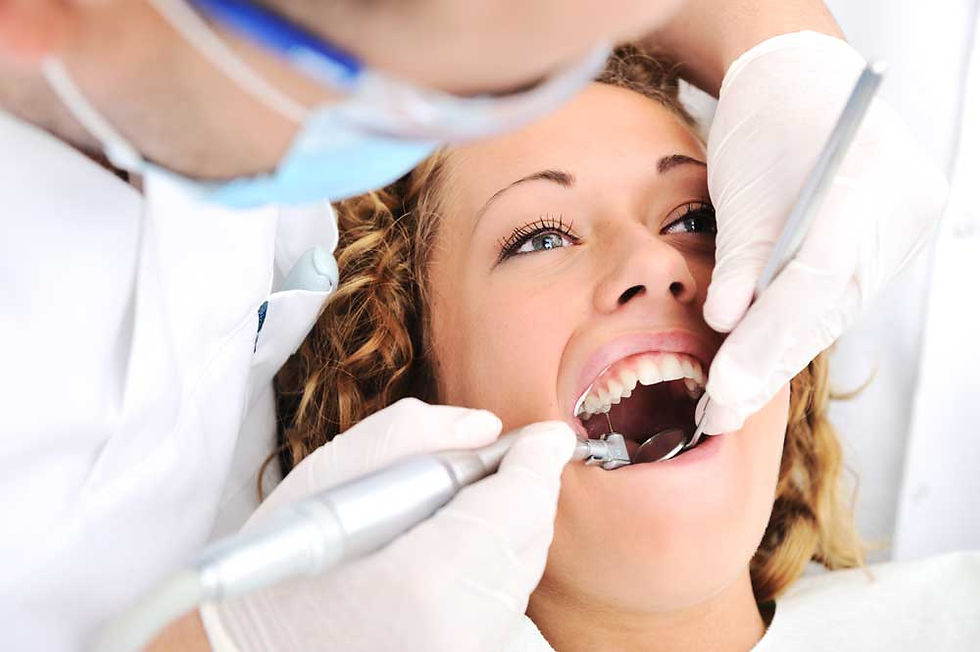What are the Symptoms of Gum Disease and How Can It Be Cured?
- Laticia Gibson
- Mar 5, 2022
- 4 min read
If you’re wondering how to know if you have gum disease or if you should even be concerned about it, you’re not alone. Gum disease, or periodontal disease, is the leading cause of tooth loss in adults over 45, so it’s essential to understand what causes it and how it can be prevented and treated. First, though, let’s look at the symptoms of gum disease and how they differ from those of other dental problems. Also, pay attention to these ways to prevent gum disease naturally and this roundup of reviews on the best rated dentist near me in your area!
How can you tell if you have gum disease?
Many people may not be aware that can gum disease be cured . In most cases, you cannot feel your gums getting worse. However, there are signs and symptoms to watch out for if you think you might have gum disease. These include red, swollen or bleeding gums; loose teeth; bad breath that won’t go away; sensitivity when biting or chewing certain foods; soreness when brushing your teeth; bone loss near your teeth caused by gum recession—and for some people, difficulty swallowing. If any of these symptoms persist for two weeks or more, make an appointment with a dentist as soon as possible to get checked out.
Three Different Types of Gum Disease
There are three types of gum disease. The best rated dentist near me will tell you about these three different types, but you should know that even with good dental hygiene, most people will get at least one type of gum disease during their life. However, by practicing proper oral hygiene habits and visiting your best rated dentist near me regularly, gum disease can be managed, monitored and cured if it is diagnosed early.
Types of Treatments for Gum Disease
The sooner you can address these dental problems, the better. It’s important to note that not all gum diseases or issues will necessarily require a trip to your dentist—often, cleaning at home or with a mouthwash is enough. However, if your teeth begin to be sore or you notice bad breath that won’t go away, it’s important to make an appointment as soon as possible. After all, there’s no reason why you should suffer with bad breath or sensitive teeth when there are so many ways to treat them! Your dentist will be able to determine whether or not gum disease is affecting your oral health.
Are Over-the-Counter Products Worth Using?
Some people with gum disease will do anything to get rid of it. But over-the-counter products can be risky, sometimes causing more harm than good. A dentist should always be consulted when symptoms arise. Treatment by a qualified professional is always necessary because they can detect underlying issues that may be causing your condition in order to address those root causes rather than just treating your symptoms. If you’re currently using OTC products or have used them in the past, schedule an appointment with a dentist as soon as possible so they can determine
what’s causing your gum disease and how best to treat it.
The Most Common Question from Patients: Does Brushing Cause Gum Disease?
For some reason, many people think that their teeth aren’t getting clean unless they scrub hard enough to irritate their gums. Nothing could be further from the truth. Brushing your teeth is only effective when you use proper technique, which includes using a soft-bristled toothbrush that makes only gentle contact with your gums. Use too much pressure and you’ll irritate your gums—and in some cases cause gum disease.
What is the Best Way to Brush Your Teeth at Home?
If you want to cure gum disease, it’s important to keep your pearly whites clean. But brushing your teeth every day isn’t always enough. In fact, depending on how long you’ve had gum disease or how severe it is, there may be steps you need to take beyond just brushing twice a day. Here are some tips for a proper home-based oral hygiene routine: Make sure you have a good toothbrush with soft bristles that can get into all those nooks and crannies that plaque tends to stick in. Check out our suggestions for best toothbrushes here. Use an approved fluoride toothpaste that has been approved by your dentist or physician if needed.
When Should I Call My Dentist if I Have Signs of Bad Breath or Teeth Sensitivity Problems?
Sensitivity is a symptom that may be caused by root canal treatments (the nerves inside teeth were killed off) or fillings that are starting to wear away. Other factors, such as gum disease, could also cause sensitivity. If you notice any kind of discomfort in your mouth after eating, drinking hot liquids or just brushing your teeth—particularly if there’s no other cause for it like biting your tongue—it might be a sign of bad breath, tooth decay or sensitivity. Get it checked out at least once a year if you have regular dental checkups with your dentist. The best rated dentist near me will help you on how to cure gum disease!


Comments